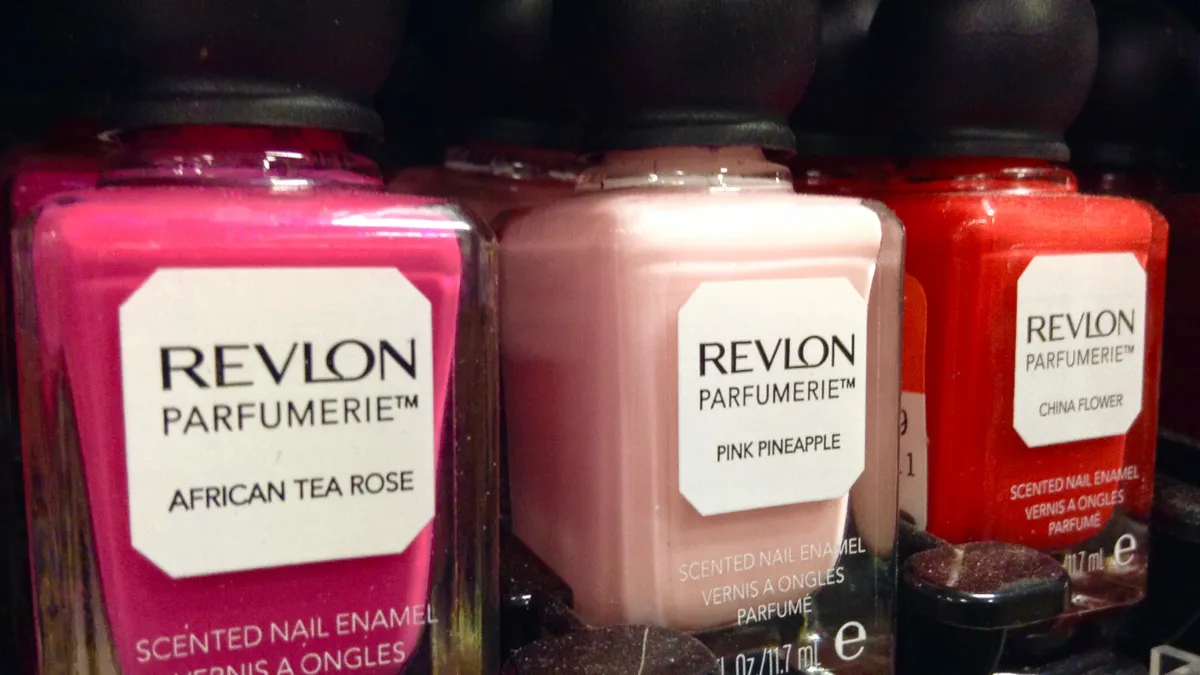Dive Brief:
- Revlon’s sales fell 10.1% year over year to $468.4 million in the third quarter, while its gross margin shrunk by nearly 2 percentage points, according to a press release.
- The cosmetics giant, which is trying to firm up its finances and relationships with suppliers and retailers while in bankruptcy, saw its operating income more fall by more than half from Q3 last year.
- Revlon’s net loss nearly tripled to $152.8 million. The increase was due in large part to $85 million in costs from the bankruptcy process, as well as operating income declines and losses from unfavorable currency exchange rates.
Dive Insight:
Revlon and its attorneys have been busy since the company filed for bankruptcy in June. With a complicated business, lender infighting and a tough economic climate, there is plenty of work ahead yet.
When Revlon filed for Chapter 11, the company described dire possibilities ahead. Under a cash crunch, it was struggling to secure materials and supplies to make its products, with many vendors tightening up terms. As it struggled to fill orders on the sales side of its business, Revlon was at risk of losing shelf space to competitors.
Since filing, according to court papers from late October, Revlon reached agreements with around 240 suppliers and executed 143 trade agreements, which the company said “assisted [Revlon] in restarting their supply chain and have substantially improved their trade credit and liquidity position.” At the time, vendor negotiations with others were ongoing.
Revlon has also won court clearance to pay bonuses to certain employees deemed by the company to be critical to its operations, as well as potentially millions for its executives.
As it works to right the ship, the company is trying to figure out its future post-bankruptcy, including the question of who will own it. Revlon said it has been evaluating multiple inbound proposals for M&A transactions, sales and other “opportunities.” According to Reuters, the company’s attorneys said at a hearing that Revlon was talking with potential buyers and has begun sending nondisclosure agreements to interested parties.
A company sale would provide one path out of bankruptcy if approved by the court and lenders.
Meanwhile, Revlon has also come under fire from a large group of lenders over financial transactions in recent years meant to help the ailing company. In a lawsuit, plaintiffs alleged the financing deals improperly used collateral that had backed an earlier loan. That lawsuit, too, could have an impact on how Revlon’s bankruptcy case plays out.
In the meantime, Revlon is still losing sales and profits in a tough consumer environment.
















